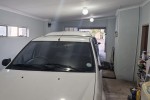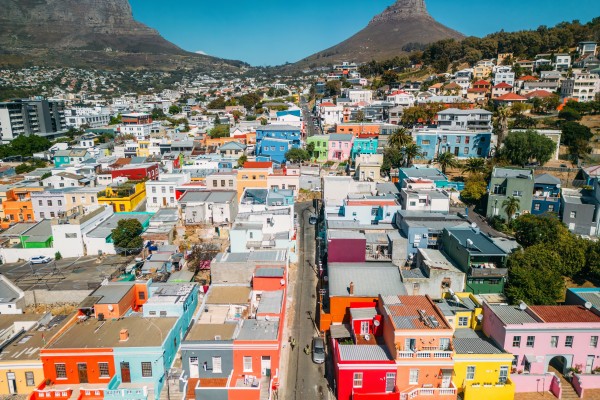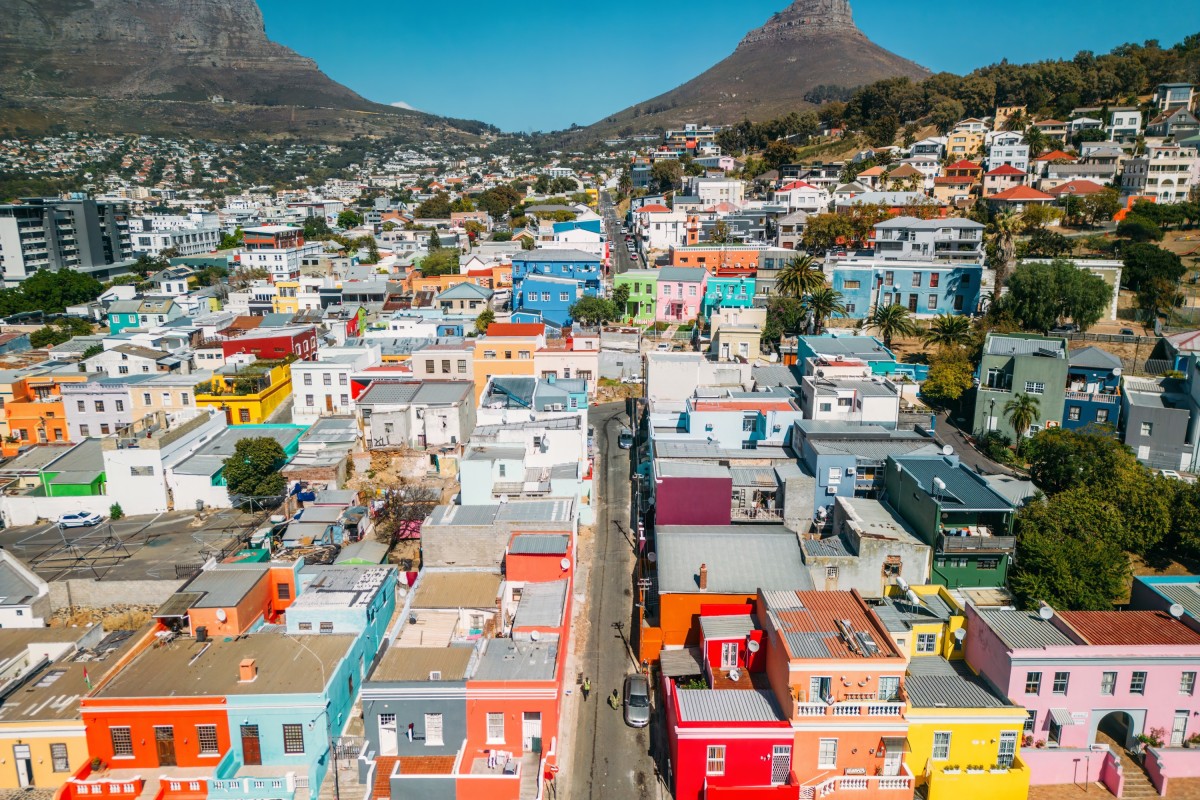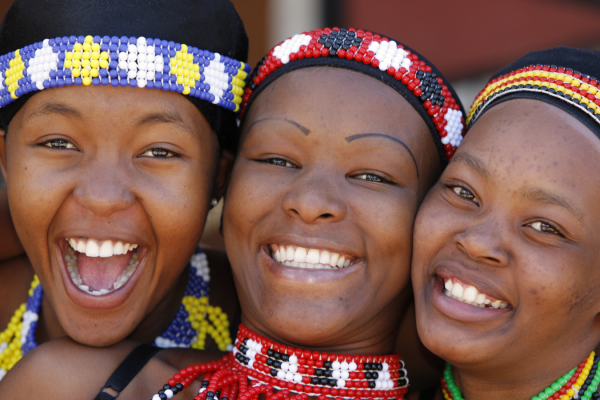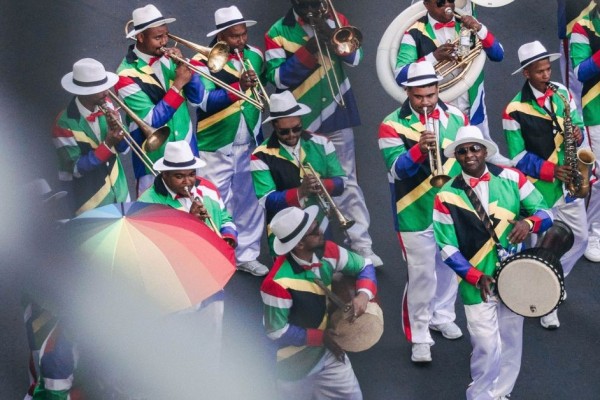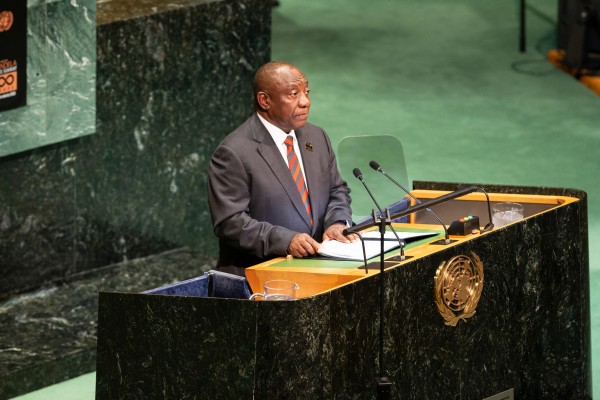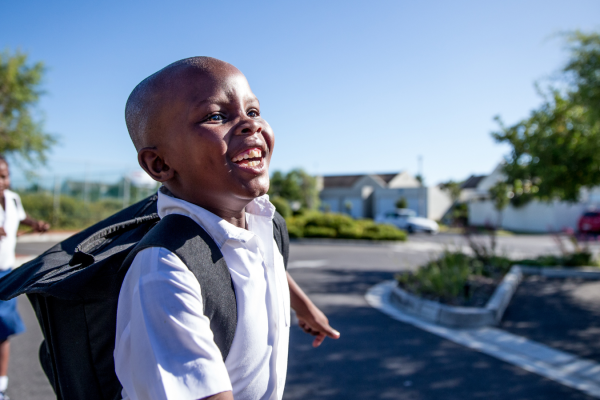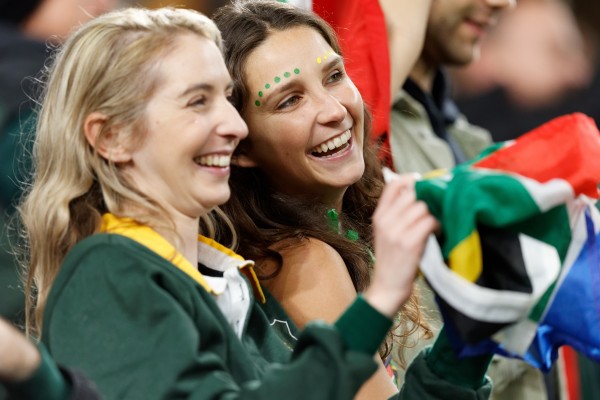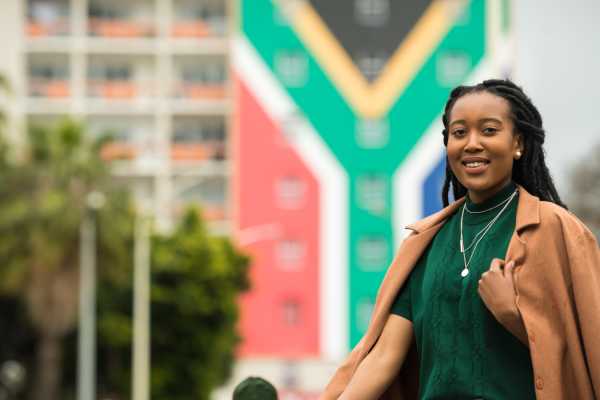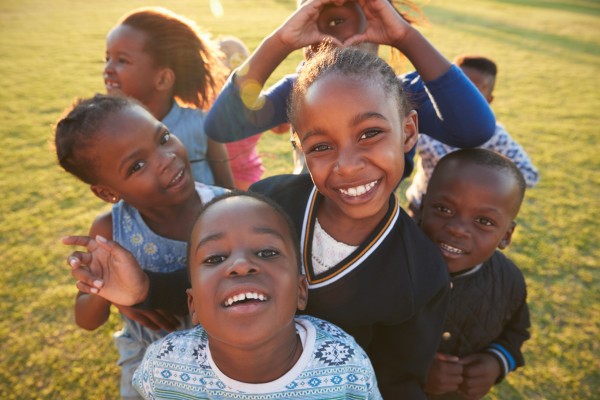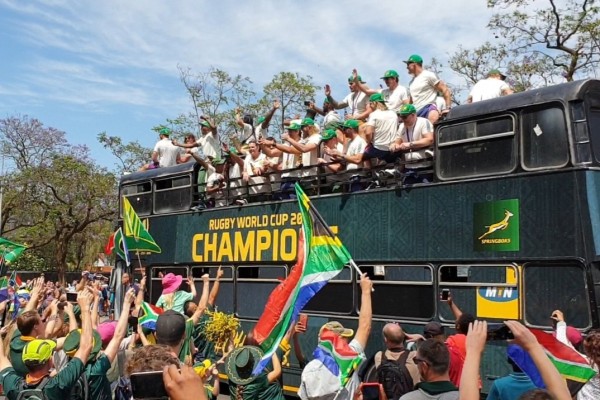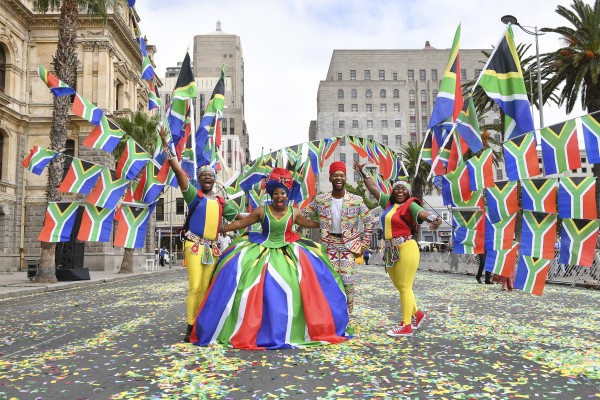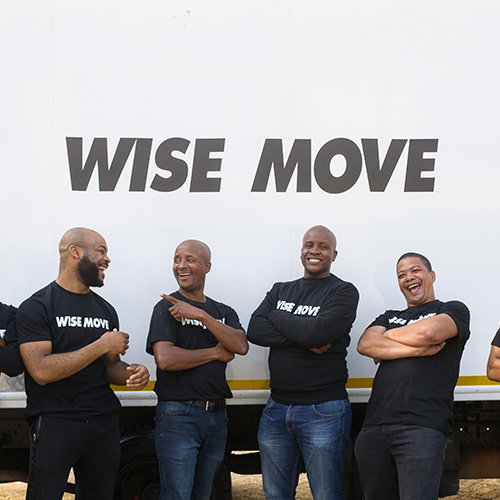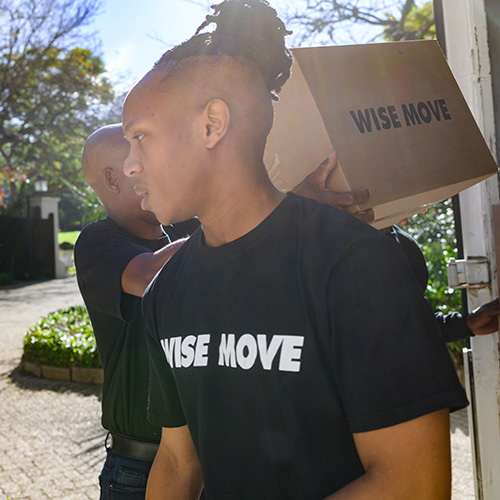A simplified guide to understanding South African politics for new residents

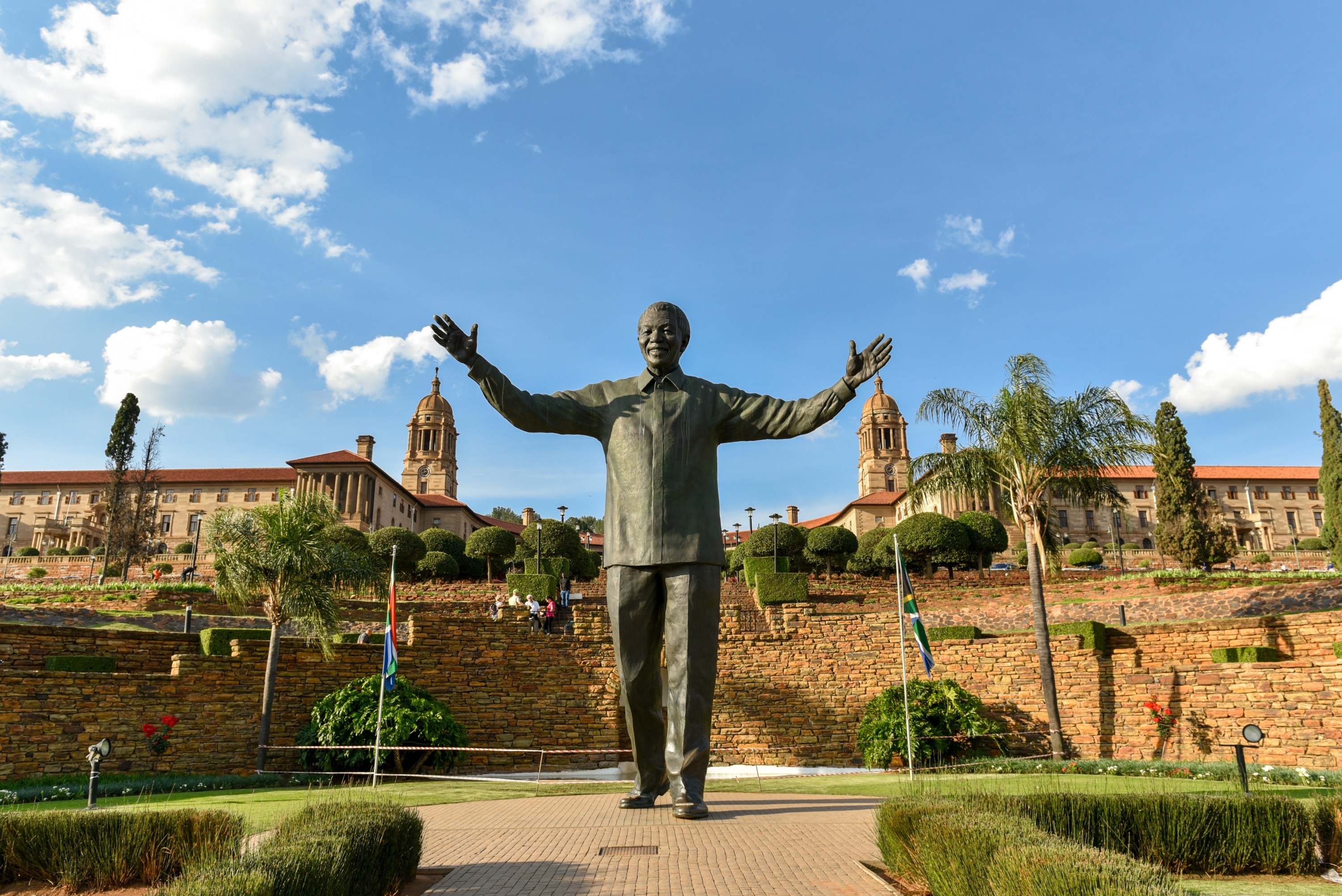
There is no country like South Africa. With its complex, yet triumphant history, rich cultural diversity and progressive and innovative nature, the Rainbow Nation is a country many are proud to call home.
Whether you’re moving to South Africa and are curious about the political landscape, or you’ve lived in South Africa all your life and want to keep yourself informed here is the complete guide to South African politics—from a quick history of South African politics and a breakdown of the democratic structure to a list of the political parties and everything you need to know about the national elections.
A brief overview of South African politics
Since 1994 and the end of apartheid, South Africa has been a democratic republic. After a complex history of colonisation, apartheid and a long struggle for freedom, South Africa officially became a democratic republic in 1994, marked by the first democratic elections.
After leading the fight against apartheid, the African National Congress (ANC) won the elections, and Nelson Mandela became the first democratically elected President of South Africa.
In 1996, the Constitution of the Republic of South Africa was approved by the Constitutional Court, establishing the supreme law of the land. It includes the Bill of Rights which specifies the civil, political, economic, social and cultural human rights of the people of South Africa. South Africa’s Constitution is known as one of the most progressive in the world.
Since 1994, the ANC has remained in power, electing 4 presidents through 6 elections and facing opposition mainly in the Democratic Alliance (DA) and Economic Freedom Fighters (EFF). But while the fight against oppression had been won, the challenges for South Africa were not over.
It’s been 30 years since apartheid ended, and while South Africa has definitely come a long way in closing the massive gaps of inequality with many recent debates centring around Black Economic Empowerment (BEE) and land reformation, the country still faces major issues, including unemployment, violent crime, a housing crisis, gender-based violence, insufficient infrastructure, corruption, load shedding and more. This has led to a lack of trust in the government by many.
Following the 2024 elections in South Africa, there’s an ignited hope that change is on the way to create a better South Africa for all.
What are the three levels of government in South Africa?
The South African government is divided into 3 levels. These levels are designed to ensure the government operates effectively and create a closer connection between the government and the people it serves. Each level of government has their own sphere of power and specific function:
1. The National Government
The purpose of the National Government is to work with problems that affect the whole country. This includes matters relating to foreign affairs, defence, intelligence, tertiary education, national transport and national taxation.
2. The Provincial Government
The Provincial Governments deal with provincial issues such as ambulances, libraries, liquor licences, provincial roads, recreational amenities and provincial sports. They also problem-solve shared issues with the National Government, including agriculture, schools, police, public transport and health and welfare services.
3. The Local Government
Local Government is made up of three types of municipalities—namely, metropolitan, district, and local. These municipalities are tasked with various responsibilities including sanitation, sewage management, and traffic control, alongside fostering the development of their respective communities.
What are the three branches of government in South Africa?
South Africa’s government consists of 3 distinct branches—the Executive, Legislature and Judiciary. Each branch has a specific capital, hence South Africa's 3 capital cities. Here’s a breakdown of the roles, powers and functions of each branch of the South African government:
1. The Executive Goverment with capital in Pretoria
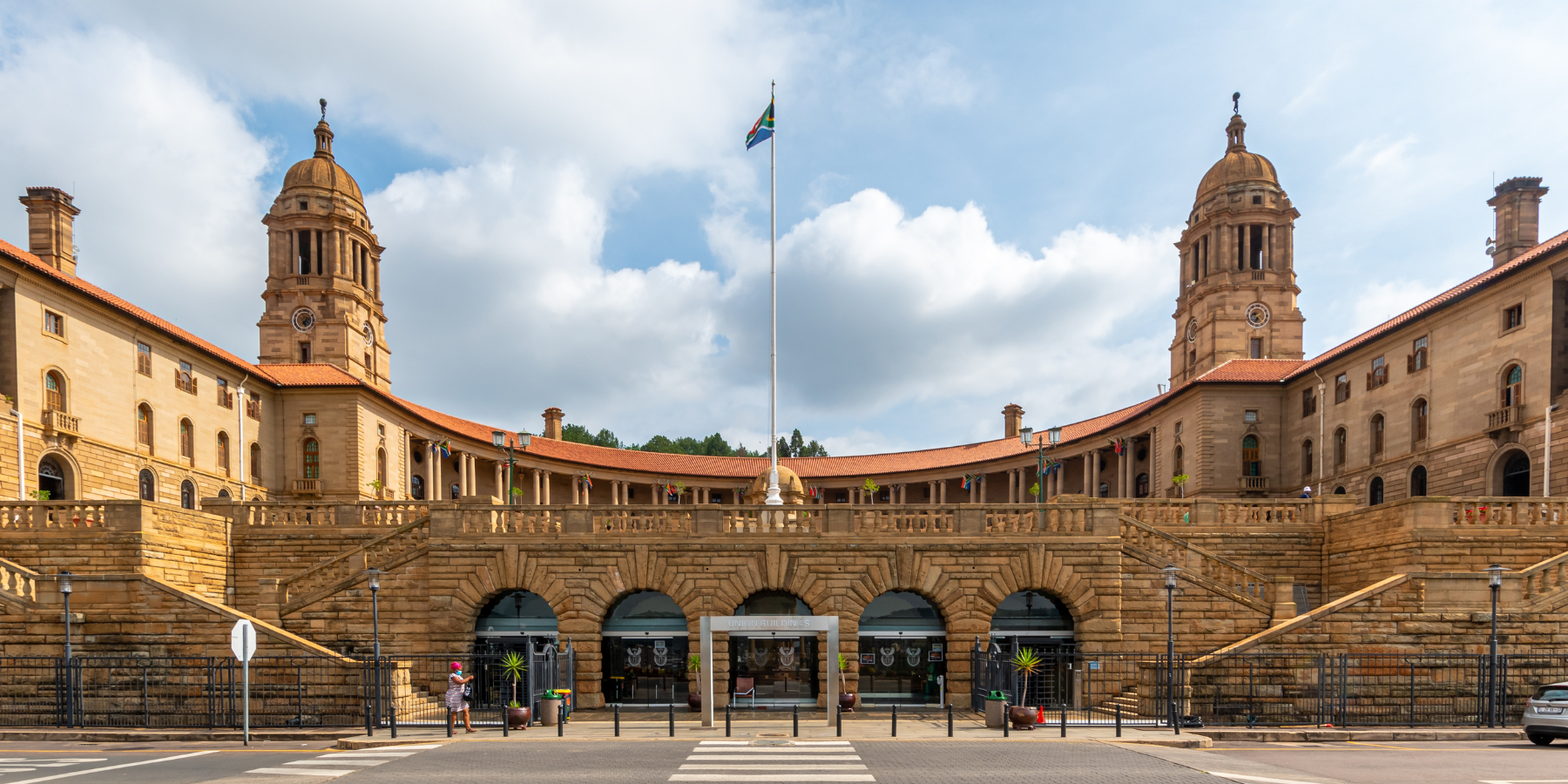
The Executive branch of the South African government is made up of the President and the Cabinet, which function to govern the country on a national level. The Executive works to propose new laws to develop and implement national policy.
The President is the head of state and national executive, holds the position for a 5 year term and has a maximum of 2 terms. The President elects the Deputy President, Ministers and Deputy Ministers to create the Cabinet. The President can select any number of Ministers from the National Assembly—but a maximum of only 2 Ministers can come from outside the National Assembly.
In addition to the national level, the Executive branch works on a provincial level through the Provincial Executive Councils—one in each province. Each council consists of Members of the Executive Council (MEC). The MEC is headed by a Premier, who is elected by the President.
2. The Legislature Government with capital in Cape Town
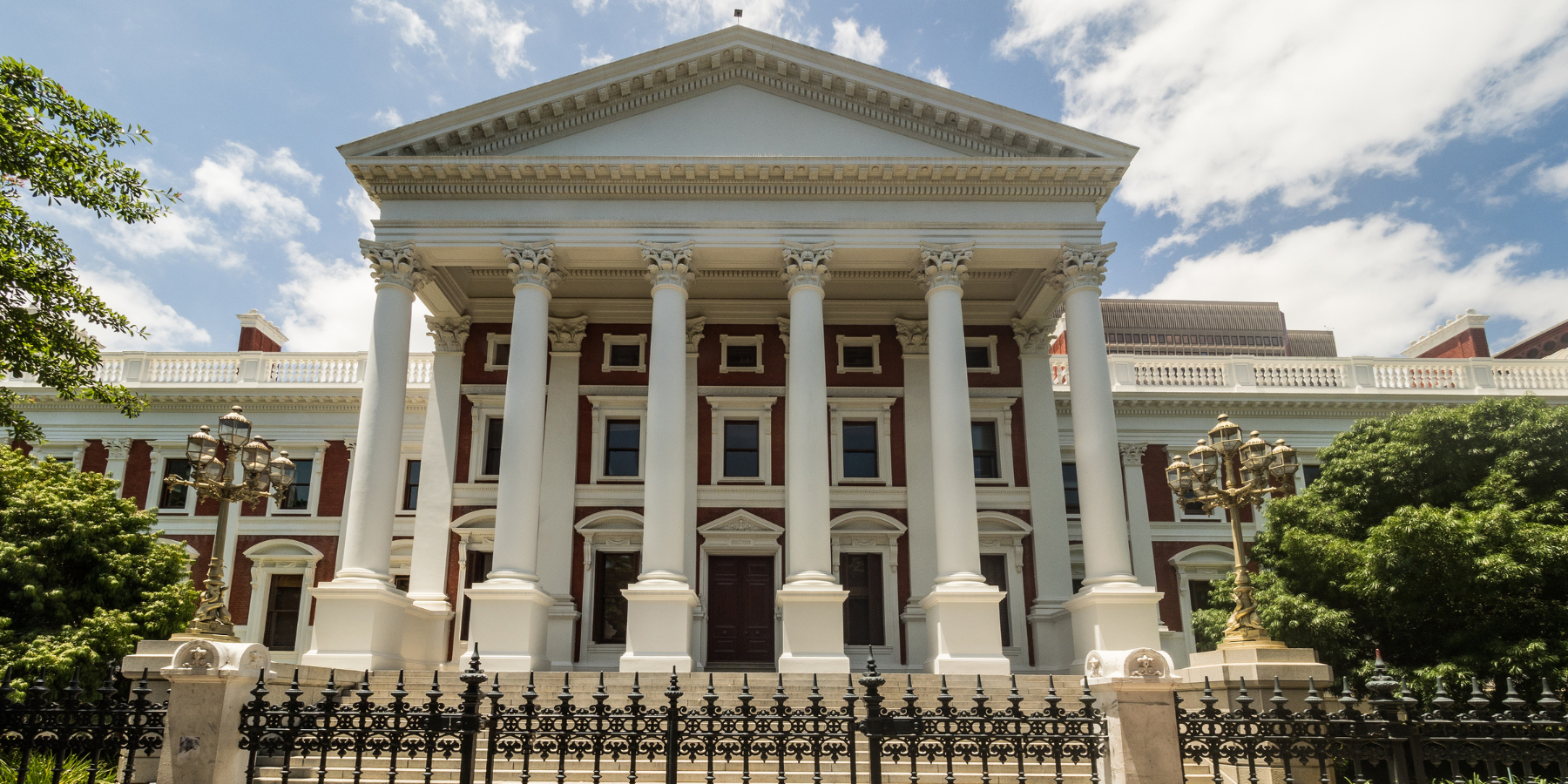
The Legislative branch of government is the Parliament of South Africa, which is led by the Speaker and consists of 2 houses:
The National Assembly
The National Assembly uses a proportional representation (PR) voting system–an electoral system where the number of seats given to each elective party is proportional to the number of votes the party received during the General Elections.
The National Assembly usually has between 350-400 Members of Parliament (MPs) who are selected by their elected parties. The role of the National Assembly is to elect the President, pass laws, scrutinise budgets and importantly, hold the executive responsible, ensuring its members are doing their job properly.
The National Council of Provinces (NCOP)
The National Council of Provinces operates on a provincial level to ensure that each of the 9 provinces has a voice in Parliament. They play an important role in improving the relations between national, provincial and local governments.
It consists of exactly 90 members, 10 for each province. The 10 members per province are made up of 6 permanent members and 4 non-permanent members, one of which is the Premier of the province who leads the province’s delegation.
3. The Judiciary Government with capital in Bloemfontein
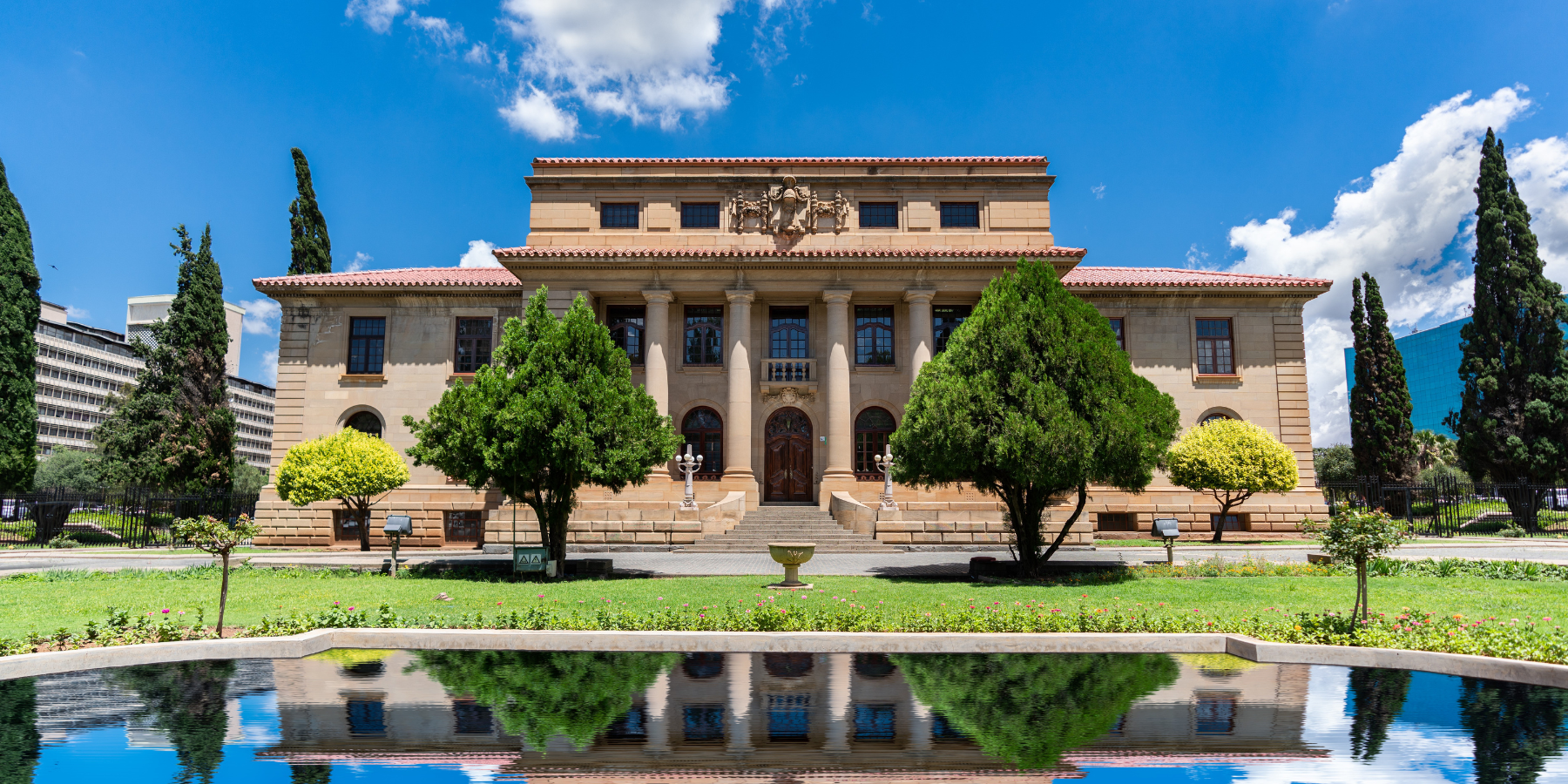
South Africa’s Judiciary branch involves all courts and is led by the Chief Justice. The role of the Judiciary is to interpret and execute the law, acting completely independently of the Executive and Legislature branches.
South Africa has 5 courts:
-
The Constitutional Court: The highest court which is restricted to constitutional matters.
-
The Supreme Court of Appeal: Considered the highest court except the Constitutional Court, as it only deals with cases sent from the High Court and its decisions can’t be changed by any other court.
-
The High Courts: There are 13 High Courts, including one for each province as well as the Labour Court and Labour Appeal Court, the Land Claims Court, the Competition Appeal Court, the Electoral Court and the Tax Court.
-
The Magistrates’ Courts: Lowers courts that deal with less serious criminal and civil cases.
-
Any other court recognised under the Act of Parliament, including Children’s Court, Equality Court, Sex Offences Court, Maintenance Court, Small Claims Court and more.
South Africa’s Elections
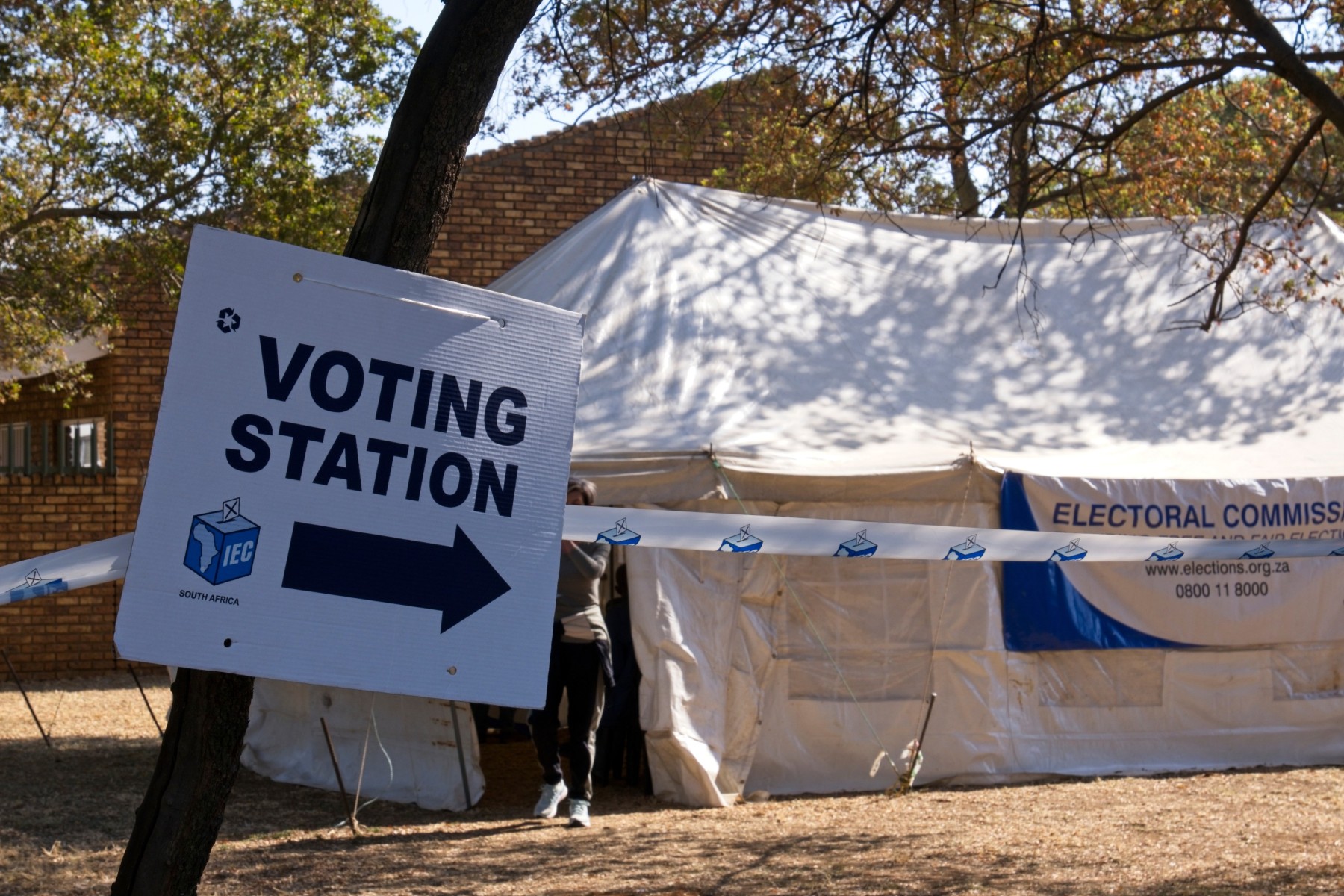 One of the most interesting times in the world of South African politics is during election season. Not only is it a time to celebrate South Africa’s democracy and reflect on all aspects of the South African government, but it’s also a time when political parties are emerging and coming together to campaign their policies and prospects for a better country.
One of the most interesting times in the world of South African politics is during election season. Not only is it a time to celebrate South Africa’s democracy and reflect on all aspects of the South African government, but it’s also a time when political parties are emerging and coming together to campaign their policies and prospects for a better country.
To understand South African politics, it's important to look at how and when political parties are elected into government. Let’s check out how South African elections work and look back at the 2024 General Elections.
General Elections vs Municipal Elections
The Independent Electoral Commission (IEC) run South Africa's elections. The elections run on a 5-year cycle, but are separated into the General Elections (which include the National and Provincial Elections) and the Municipal Elections.
1. General Elections:
The first General Election under South Africa’s free democracy was in 1994, followed by 1999, 2004, 2009, 2014, 2019 and 2024.
The General Election uses a proportional representation (PR) voting system to allow both big and small parties to be represented.
For these elections, voters vote for both National and Provincial Legislatures, namely the National Assembly and National Council of Provinces, on 2 separate ballots.
2. Municipal Elections:
The Municipal Elections take place 2 years after the General Elections. The first ran in 1996, followed by 2001, 2006, 2011, 2016, 2021 and then next in 2026.
The Municipal Elections uses a hybrid voting system of proportional representation (PR) and a constituency. Half the seats in local and metro councils come from the PR system and half from the constituency (ward) system.
Who can vote in South Africa’s Elections?
To vote in the South African General Elections, you must be:
-
A South African citizen
-
18 years old
-
Have a green, barcoded South African ID, smartcard ID or a valid Temporary Identity Certificate (TIC)
South Africa’s previous elections
Since the first democratic election in 1994, there have now been 7 General Elections in South Africa. The ANC may have been the outright winner for the past 30—but the results from the 2024 General Election caused a significant shift in South Africa's political landscape. For the first time since the end of Apartheid, the ANC lost its Parliamentary majority, securing only 40.18% of the vote.
Here’s a look at the results of the previous elections in South Africa:
| 1994 | 1999 | 2004 | 2009 | 2014 | 2019 | 2024 | |
| African National Congress (ANC) | 62.65% | 66.35% | 69.69% | 65.90% | 62.15% | 57.50% | 40.18% |
| Democratic Alliance (DA) | 1.73% (DP) | 9.56% (DP) | 12.37% | 16.66% | 22.23% | 20.77% | 21.81% |
| uMkhonto we Sizwe (MK) | - | - | - | - | - | - | 14.58% |
| Economic Freedom Fighters (EFF) | - | - | - | - | 6.35% | 10.80% | 9.52% |
| Inkatha Freedom Party (IFP) | 10.54% | 8.58% | 6.97% | 4.55% | 2.40% | 3.38% | 3.85% |
| Freedom Front Plus (FF+) | 2.17% | 0.80% | 0.89% | 0.83% | 0.90% | 2.38% | 2.06% |
| Pan Africanist Congress (PAC) | 1.25% | 0.71% | 0.73% | 0.27% | 0.21% | 0.19% | 0.17% |
| African Christian Democratic Party (ACDP) | 0.45% | 1.43% | 1.60% | 0.81% | 0.57% | 0.84% | 0.65% |
| United Democratic Movement (UDM) | - | 3.42% | 2.28% | 0.85% | 1.00% | 0.45% | 0.38% |
| Congress of the People (COPE) | - | - | - | 7.42% | 0.67% | 0.27% | 0.20% |
2024 South African General Elections
South Africa’s most recent General Elections took place on 29 May 2024.
The ANC's declining popularity was evident in the 2024 elections, where it lost its majority for the first time since 1994. This shift was met with fierce opposition, particularly from the DA, EFF, IFP, and the newly formed uMkhonto we Sizwe (MK Party), led by former President Jacob Zuma.
The Multi-Party Charter was another interesting dynamic that emerged in the political landscape of South Africa—from a general consensus amongst its parties that the country was ready for and needed new leadership.
This Multi-Party Charter coalition, or pre-election agreement, was formed in August 2023 to challenge both the three-decade rule of the ANC and the recent rise of the controversial EFF.
The initial 8 members of the Multi-Party Charter include:
-
Democratic Alliance (DA)
-
Inkatha Freedom Party (IKP)
-
Freedom Front Plus (FF+)
-
ActionSA
-
African Christian Democratic Party (ACDP)
-
United Independent Movement (UIM)
-
Spectrum National Party (SNP)
-
Independent South African National Civic Organisation (ISANCO)
Leading up to the elections, the coalition grew to 10 members, including the Ekhethu People’s Party and the United Christian Democratic Party, with the hopes of more joining. These parties collectively held 112 Parliamentary seats out of 400 and aimed to secure a majority in the 2024 elections.
The Multi-Party Charter, however, did not win their majority. The MK Party, which did not participate in the Multi-Party Charter, came out strong 14.58% of the vote. This consequently brought about the formation of the Government of National Unity (GNU).
The ANC joined forces with the DA, IFP, and other smaller parties to remain in power. As a result, Cyril Ramaphosa has remained President, with a coalition government working together to shape the future of South Africa.
Political Parties in South Africa
To help you better understand South Africa’s political landscape, it’s essential to know the political parties that work to govern South Africa, especially if you’re gearing up to vote in the upcoming elections.
With a multi-party system, South Africa has quite several political parties. However, only a dozen have enough support for representation in government. A couple of new parties are also the rise, making waves in their first elections in 2024.
Here’s a list of the main political parties in South Africa you should know about:
1. African National Congress (ANC)
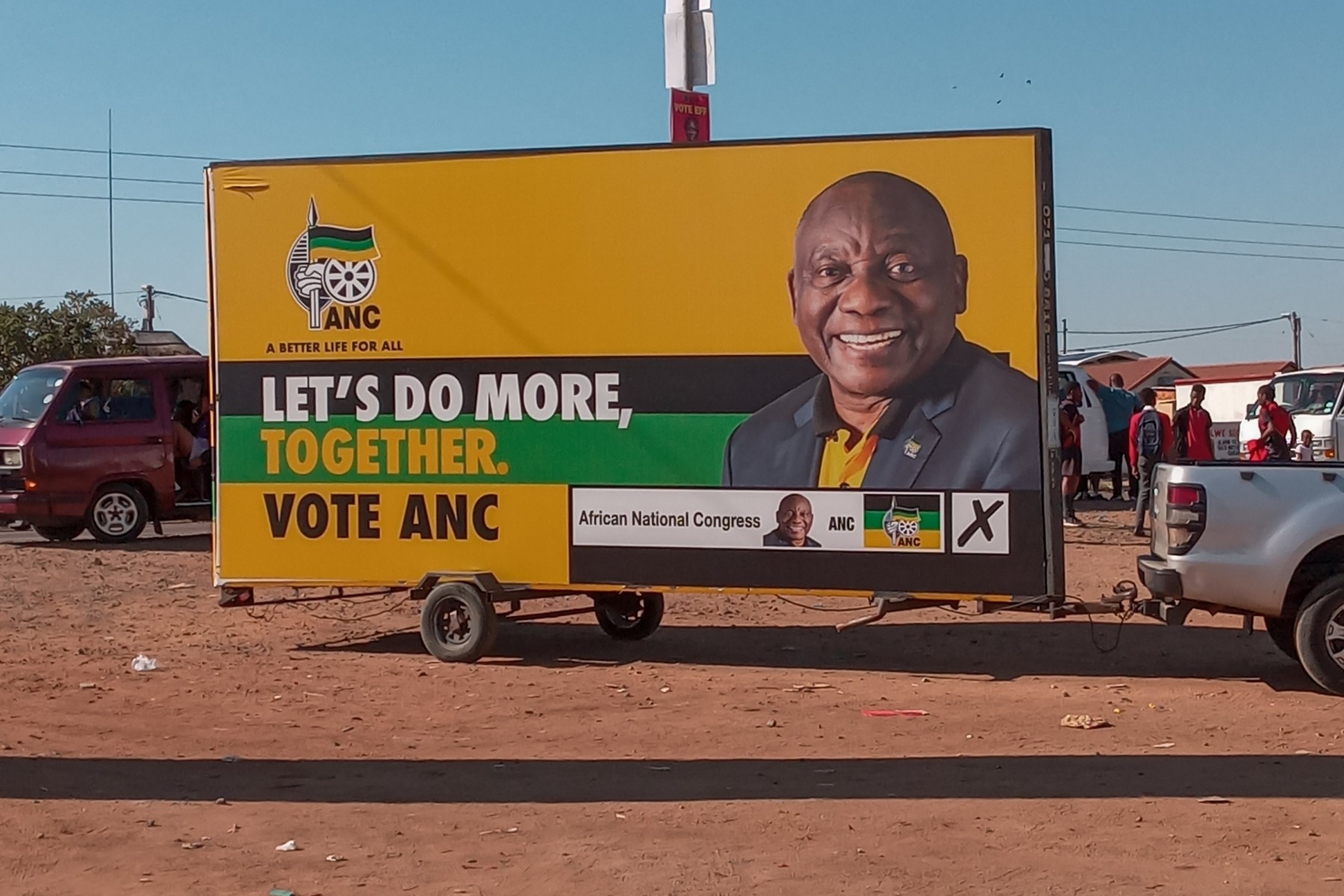 Leader: Cyril Ramaphosa
Leader: Cyril Ramaphosa
Established in: 1912
Percentage of Votes in 2024 Elections: 40.18%
Ideology: African nationalist social democracy
Position: Centre-left to left-wing
The African National Congress (ANC) has been the ruling party in South Africa since the first democratic elections in 1994, led by Nelson Mandela. It is also South Africa’s oldest political party, originating in 1912 as the South African Native National Congress and changing its name to the African National Congress in 1923.
Winning the elections again in 1999 with almost a two-thirds majority, Mandela was succeeded by Thabo Mbeki who served 2 terms but resigned before the end of his 2nd term due to conflicts within the ANC and the rise of Jacob Zuma.
Zuma followed Mbeki as President with the ANC winning the 2009 and 2014 elections, serving 2 terms. However, with a presidency filled with controversy, Zuma also resigned before the end of his 2nd term. Deputy President Cyril Ramaphosa served as Acting President before becoming President after the ANC’s win in the 2019 elections. He is now serving his 2nd term after the 2024 elections and the formation of (GNU).
The ANC’s objective is to create a united, non-racial, non-sexist and democratic society. While the ANC has been instrumental in transforming South Africa post-apartheid, in recent years, the ANC’s support has wavered due to waves of controversy and corruption and the rise of opposition parties such as the DA and EFF.
2. Democratic Alliance (DA)
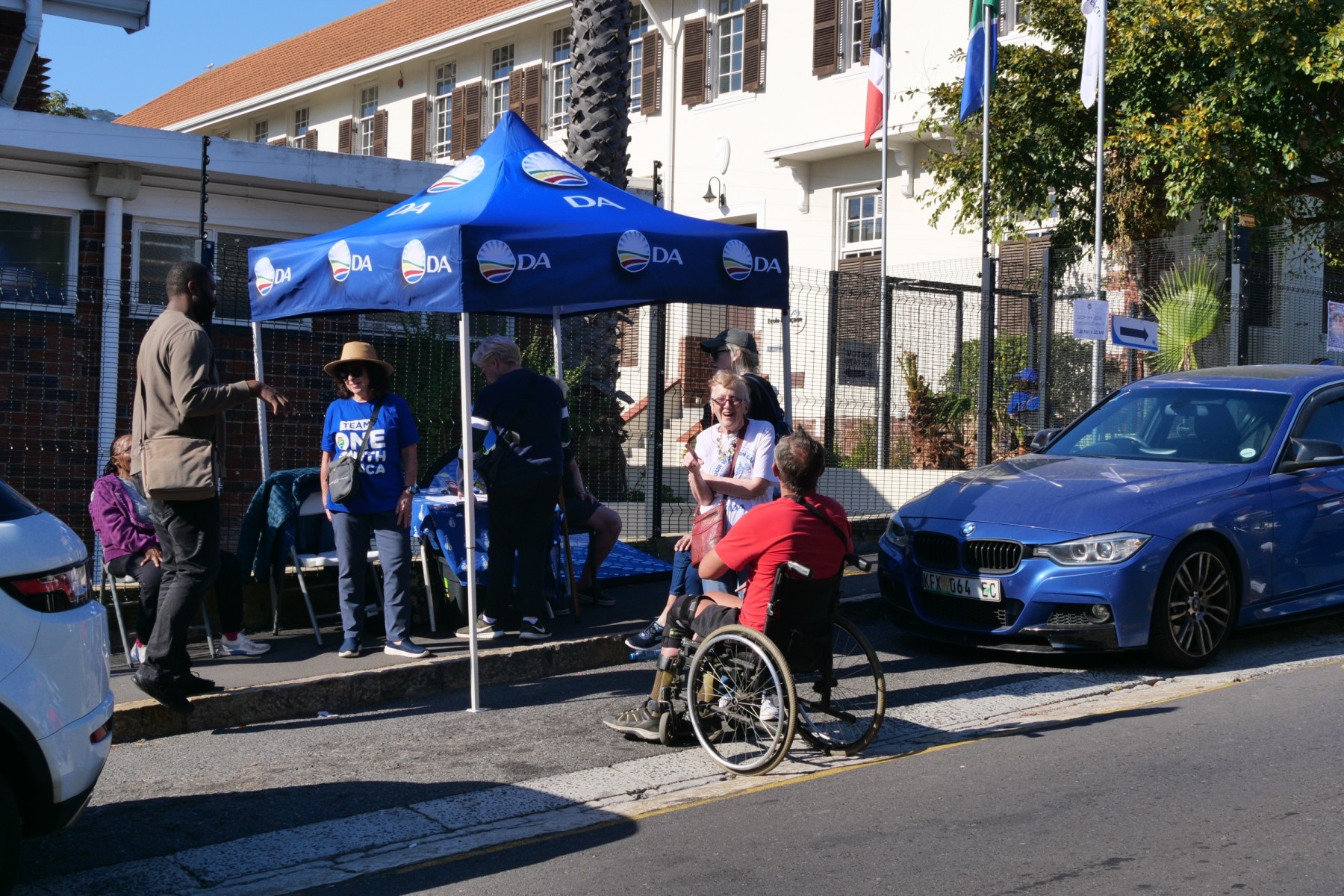 Leader: John Steenhuisen
Leader: John Steenhuisen
Established in: 2000
Percentage of Votes in 2024 Elections: 21.81%
Ideology: Federal liberalism
Position: Centre-right
The Democratic Alliance (DA) has been the ANC’s main opposition since the 1999 elections when it was formerly known as the Democratic Party (DP). It officially became known as the Democratic Alliance in 2000 when the Democratic Party, New National Party (NNP) and Federal Alliance (FA) joined forces (however, the NNP withdrew soon after in 2001).
Led originally by Tony Leon, the former DP leader, Helen Zille, the Western Cape Premier took over in 2007. In the 2009 elections, the DA won the Western Cape, being the only province not governed by the ANC and holding onto the Western Cape since.
Zille was succeeded by Mmusi Maimane in 2015, the first black leader of the DA, who helped the DA gain black voters after being seen as a majority-white party. However, Maimane left the DA in 2019, leading to a dip in the DA’s support in the 2019 elections. Since then, the DA has been headed by John Steenhuisen.
The DA advocates for liberal democracy, the rule of law and a market-driven economy. It has a strong support base in urban areas and the Western Cape.
3. Economic Freedom Fighters (EFF)
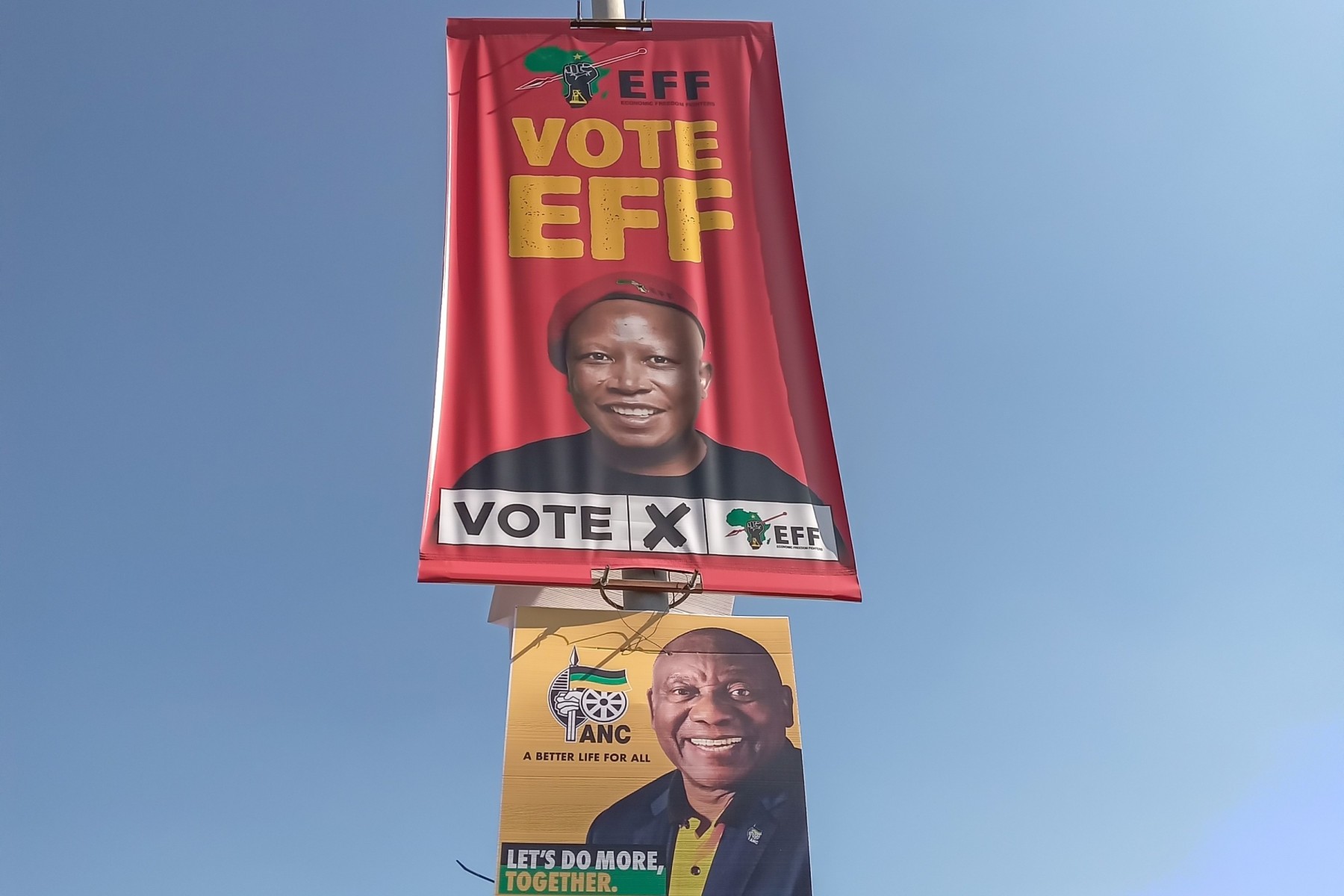 Leader: Julius Malema
Leader: Julius Malema
Established in: 2013
Percentage of Votes in 2024 Elections: 9.52%
Ideology: African nationalist socialist
Position: Radical left-wing
The Economic Freedom Fighters (EFF) was established in 2013 by Julius Malema, who previously led the ANC Youth League. Identified as a left-wing political party, the EFF became the third most popular party by securing 6.35% of the vote in its first election in 2014.
The party describes itself as a movement committed to the economic emancipation of South Africans, and it adopts an anti-capitalist and anti-imperialist stance, critiquing what it views as the neoliberal policies of the ANC. The EFF advocates for significant economic policy changes, such as the nationalization of industries and land expropriation without compensation.
The EFF has a strong following among young voters, particularly in the North West, Gauteng, and Limpopo provinces. It frequently engages in debates on contentious issues, including the use of historical struggle songs and discussions on land reform in South Africa.
4. Inkatha Freedom Party (IFP)
Leader: Velenkosini Hlabisa
Established in: 1975
Percentage of Votes in 2024 Elections: 3.85%
Ideology: Zulu conservatism
Position: Centre-right to right-wing
Founded in 1975 by Mangosuthu Buthelezi, the Inkatha Freedom Party (IFP) is the 4th most popular party and one of South Africa’s oldest, playing an important role in the formation of South Africa’s democracy in the early 1990s.
While the IFP gained 41 seats in Parliament in 1994, this dropped to only 9 seats in 2014, with a lot of its supporters being poached by the rise of the EFF. Velenkosini Hlabisa took over from Buthelezi as the head of the party in 2019.
As a predominantly Zulu party, its support is mostly found in Kwa-Zulu Natal. Promoting federalism and the preservation of Zulu culture and traditions, the IFP’s focus is on social justice and the resolution to a number of South African issues, such as the AIDS crisis, unemployment, crime, poverty, and corruption.
5. Freedom Front Plus (FF+)
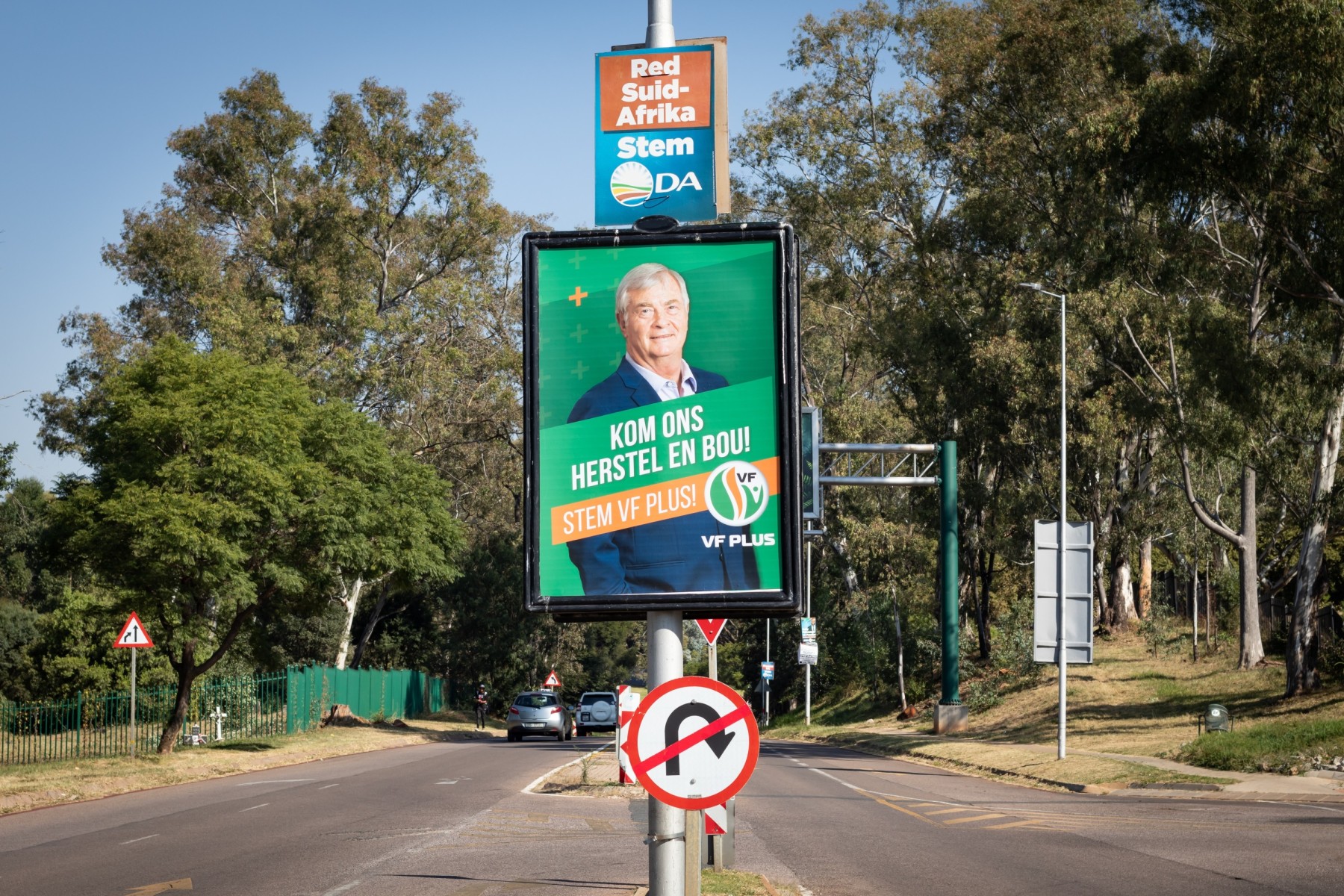 Leader: Pieter Groenewald
Leader: Pieter Groenewald
Established in: 1994
Percentage of Votes in 2024 Elections: 2.06%
Ideology: Afrikaner conservatism
Position: Centre-right to right-wing
Also known as Vryheidsfront Plus, the Freedom Front Plus (FF+) is a conservative political party with a largely Afrikaans-speaking supporter base and the aim to help Afrikaners to “protect their culture, education and values.”
From 1 seat in Parliament following the 2004 elections, the FF+ has been slowly growing its following, leading to 4 seats in 2009 and 9 seats in 2019. In 2016, Pieter Groenewald took over the party from Pieter Mulder, with the former leading the party in the 2024 elections.
The FF+ is an advocate for minority rights and self-determination, emphasising the protection of Afrikaner cultural heritage. They have expressed opposition to policies like Black Economic Empowerment (BEE), the National Health Insurance (NHI), and land reform initiatives.
6. United Democratic Movement (UDM)
Leader: Bantu Holomisa
Established in: 1997
Percentage of Votes in 2024 Elections: 0.38%
Ideology: Social democracy
Position: Centre-left
The United Democratic Movement was founded by Bantu Holomisa, a former ANC member who was expelled from the party after accusing a top party official of corruption.
While the UDM managed to gain 14 seats and 3.42% of votes in the 1999 elections, its support has since declined, earning only 3 seats with 0.49% of the vote in the National Assembly.
The UDM is a centrist party that supports social democracy and advocates for ethical governance, eradication of corruption, and improvement of public services. It hopes to appeal to voters across racial and ethnic lines, envisioning “the coming together of all in South Africa”, to build one nation that ensures a quality life for every citizen.
7. uMkhonto we Sizwe (MK Party)
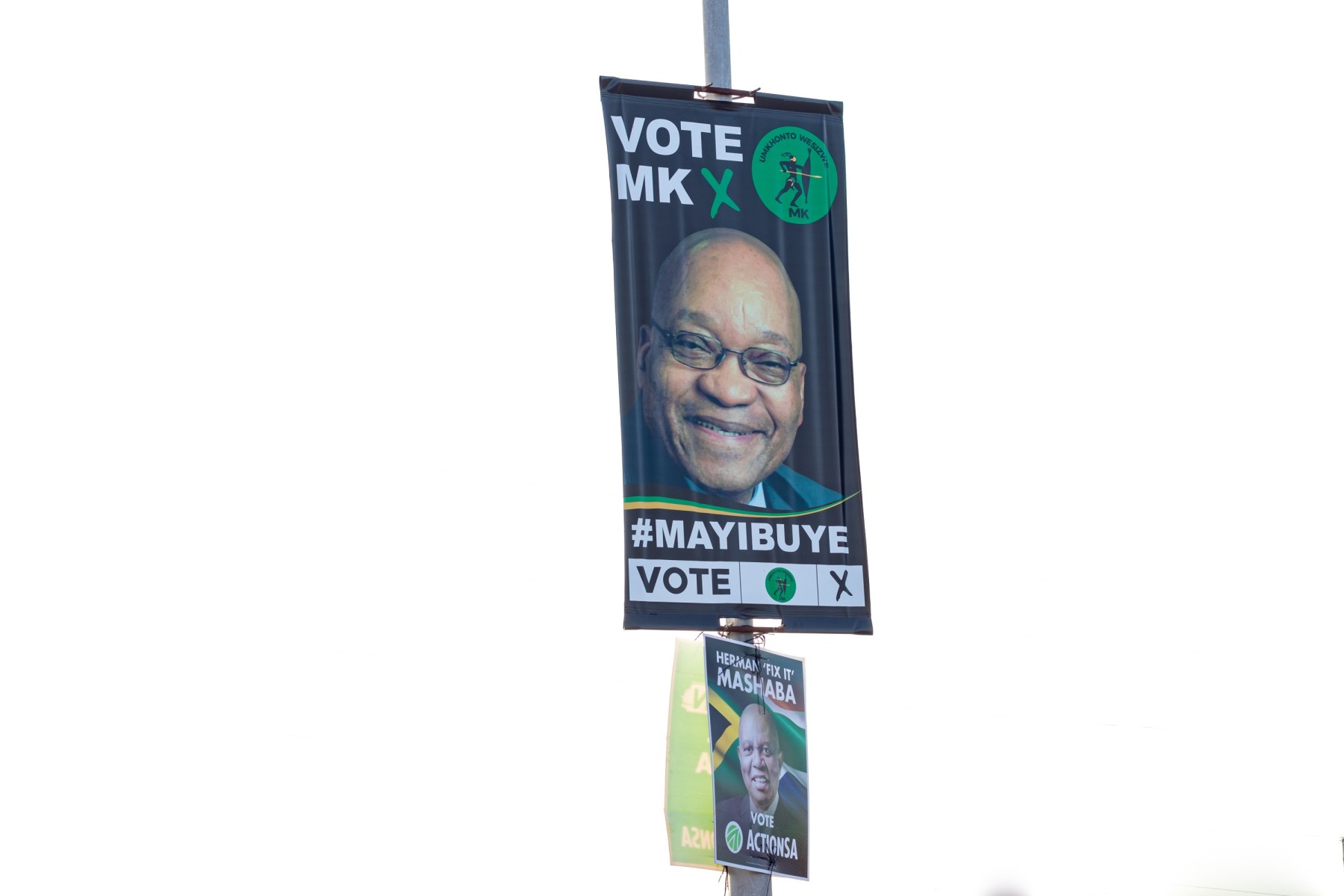 Leader: Jacob Zuma
Leader: Jacob Zuma
Established in: 2023
Percentage of Votes in 2024 Elections: 14.58%
Ideology: Zulu nationalism
Position: Left-wing
uMkhonto we Sizwe (MK Party) is a new political party that entered the scene in December 2023, founded on Reconciliation Day by Jabulani Khumalo. Following Khumalo's expulsion, former President Jacob Zuma assumed leadership of this party. The MK Party has attracted significant attention due to these developments.
There's been some legal debate over whether Zuma was eligible to run for president again. According to the constitution, a person sentenced to more than 12 months in prison within the last five years is disqualified from running. Zuma was sentenced to 15 months in 2021 for contempt of court, but served only two months. He successfully appealed this ruling, which allowed his candidacy.
The media coverage surrounding these events has significantly increased the party's visibility, reflected by its performance in the 2024 elections, where they gained 14.58% of the vote.
8. ActionSA
Leader: Herman Mashaba
Established in: 2020
Percentage of Votes in 2024 Elections: 1.2%
Ideology: Free-market liberalism
Position: Centre-right to right-wing
Formed by Herman Mashaba, the former mayor of Johannesburg after leaving the DA, ActionSA is a centrist party that aims to "set South Africa free from the restraints of a broken political system and build a prosperous, non-racial and secure future for all its people."
While many of its leaders were originally from the DA, ActionSA has asserted that the party “was not formed as part of a detraction for the DA, but the need to create an alternative towards a shared future."
While ActionSA was formed only after the 2019 elections, it had a running start at the 2021 municipal elections, winning 2.34% of votes. They managed to secure approximately 1.2% of the national vote, granting them 6 seats in the National Assembly.
9. Patriotic Alliance (PA)
Leader: Gayton McKenzie
Established in: 2013
Percentage of Votes in 2024 Elections: 2.06%
Ideology: Nationalist conservative
Position: Centre-right to right-wing
The Patriotic Alliance (PA) is one of the more controversial parties, started by businessman Gayton McKenzie and former English teacher turned businessman Kenny Kunene in 2013, declaring itself an alternative to the DA and ANC.
In the 2024 South African General Election, they achieved significant growth compared to previous elections. Where previously they had no seats in the National Assembly, the party secured approximately 2.06% of the national vote, giving them 9 seats in the National Assembly.
The PA aims to “foster a South Africa where every citizen can thrive, free from the constraints of violence, inequality and division.” Their proposed policies include a zero-tolerance on immigration, the return of the death penalty, mandatory military or public service and the elevation of royal and local leaders.
10. Build One South Africa (BOSA)
Leader: Mmusi Maimane
Established in: 2022
Percentage of Votes in 2024 Elections: 0.41%
Ideology: Democratic pragmatism
Position: Radical centrism
Founded by the former DA leader, Mmusi Maimane, Build One South Africa (BOSA) portrays itself as a social movement advocating for a non-racial society, strong ethical leadership and market-based policies with the central goal of an alternative to the domination of party politics.
Focusing on the unemployment crisis, Maimane claims his party’s priority is to ensure that at least one person per household has a job. His plan is to facilitate economic expansion and job generation, with a plan that outlines strategies to modernise the education system, reduce crime substantially, and establish an effective government based on merit.
11. Rise Mzansi
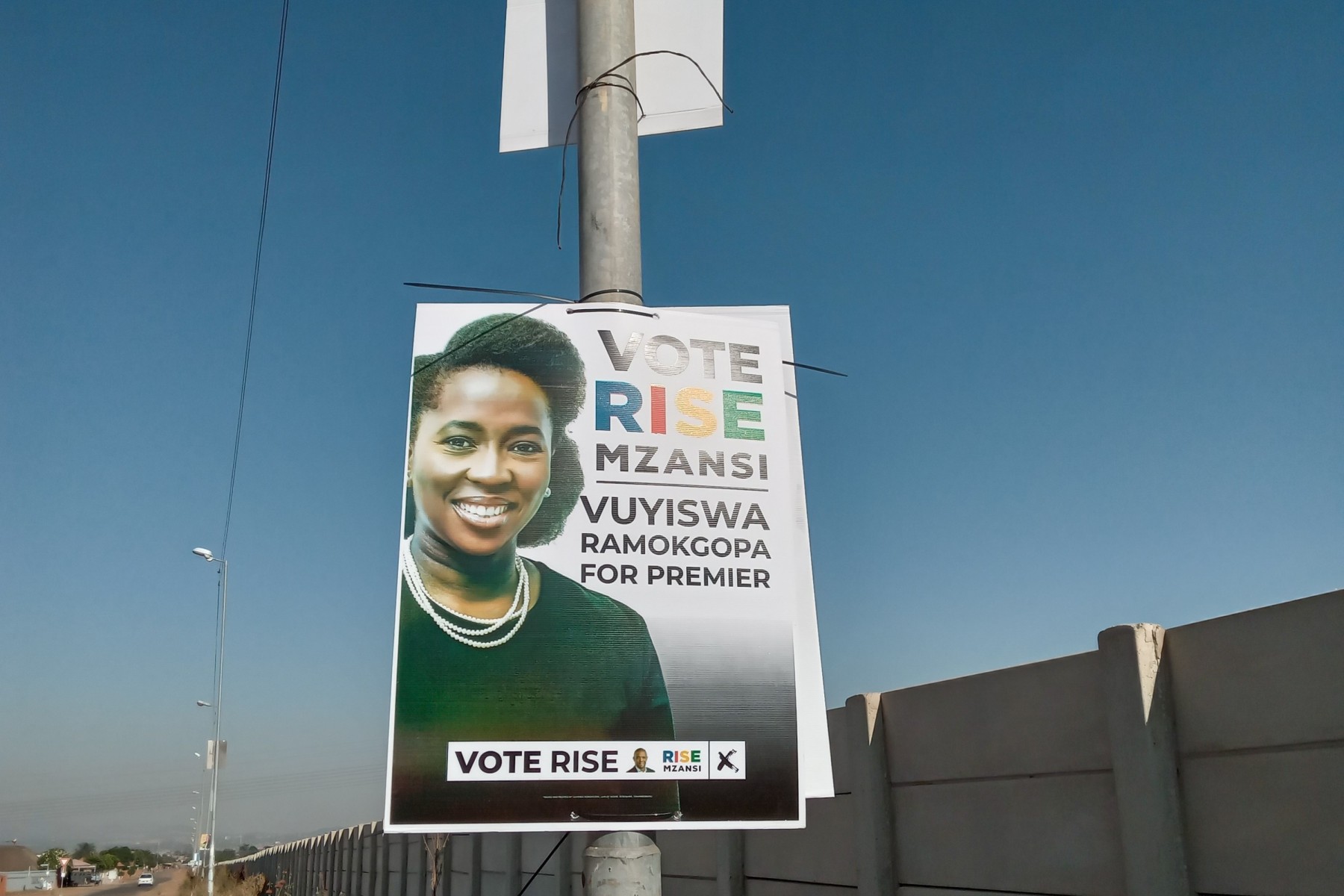 Leader: Songezo Zibi
Leader: Songezo Zibi
Established in: 2023
Percentage of Votes in 2024 Elections: 0.4%
Ideology: Social democratic constitutionalism
Position: Centre to centre-right
Rise Mzansi is another new party just over a year old and had its first elections in 2024 securing approximately 0.4% of the votes (2 sets in the National Assembly). Led by Songezo Zibi, former associate editor of the Financial Mail and former editor of Business Day, Rise Mzansi aims to mobilise the people to take up their role as active citizens and build stronger and more connected communities.
Grounded in the ideological position of a social democratic tradition, Rise Mzansi commits to building a citizen-centred politics where public representatives are responsive to the views and needs of citizens and crucially, are accountable to the people.
12. Pan Africanist Congress of Azania (PAC)
Leader: Mzwanele Nyhontso
Established in: 1959
Percentage of Votes in 2024 Elections: 0.23%
Ideology: African socialism
Position: Centre-left to left-wing
The Pan Africanist Congress of Azania (PAC) is a political party in South Africa that advocates for African nationalism. It was established in 1959 by Robert Sobukwe, who departed from the ANC to form the PAC, significantly contributing to the anti-apartheid movement. Since 2014, the PAC has maintained one seat in Parliament.
The party seeks to establish a confederation known as the United States of Africa, which would include all African nations, governed by principles of Africanist socialist democracy. PAC prioritises land reform and aims to replace the remnants of colonialism with policies that promote the self-determination of African people.
13. African Christian Democratic Party (ACDP)
Leader: Reverend Kenneth Meshoe
Established in: 1993
Percentage of Votes in 2024 Elections: 0.23%
Ideology: Christian democracy, social conservatism
Position: Centre-right
The African Christian Democratic Party (ACDP) is a Christian party rooted in biblical principles led by Reverend Kenneth Meshoe.
The ACDP believes that healthy families should be the foundation of South African society driven by traditional values. While the ACDP is an advocate for the death penalty for more serious crimes, it is strictly against abortion and recently opposed the mandate for the COVID-19 vaccine.
While the ACDP’s support rapidly declined between 2004 and 2009, dropping from 7 seats to 3, it’s managed to hang on to 4 seats since the 2019 elections.
14. Congress of the People (COPE)
Leader: Mosiuoa Lekota
Established in: 2008
Percentage of Votes in 2024 Elections: 0.09%
Ideology: Liberal social democracy
Position: Centre-left
Congress of the People (COPE) was formed as another breakaway from the ANC, founded by Mosiuoa Lekota, former Defence Minister, and Mbhazima Shilowa, former Gauteng Premier. This move took place after the rise of Jacob Zuma as party leader and the demise of Thabo Mbeki as State President.
Despite earning a whopping 30 seats in 2009, COPE faced a rapid decline since then due to infighting. After the 2029 elections, they only had 2 seats in Parliament. Their 0.09% result (14,177 votes) from the 2024 elections was not enough to secure them a seat in the National Assembly. This is the first time COPE is not representing in Parliament since its inception.
COPE describes itself as centrist and non-racist with principles which include social cohesion as well as freedom and equality before the law, summarised in its slogan: “Reliable, accountable and incorruptible”.
15. Good Party (GOOD)
Leader: Patricia de Lille
Established in: 2018
Percentage of Votes in 2024 Elections: 0.18%
Ideology: Liberal social democracy
Position: Centre-left
GOOD was founded by Patricia de Lille, former Mayor of Cape Town and a former member of the DA, following her resignation amid accusations from the DA regarding corruption in local municipalities. After participating in its first elections in 2019, GOOD secured 2 seats in Parliament, earning 0.4% of the votes. They were however only granted one seat in Parliament after the 2024 elections, where they secured 0.18% of the national votes.
Based in Cape Town, GOOD has garnered support from a diverse range of communities. The party's platform focuses on environmentalism, antiracism, and Broad-Based Black Economic Empowerment. It emphasises good governance, anti-corruption measures, and social upliftment programs. They dvocate for collaborative approaches in politics rather than confrontational ones.
16. African Transformation Movement (ATM)
Leader: Vuyolwethu Zungula
Established in: 2018
Percentage of Votes in 2024 Elections: 0.40%
Ideology: African Christian socialism
Position: Centre-right
Formed in 2018, the African Transformation Movement (ATM) is headed by Vuyolwethu Zungula and backed by the South African Council of Messianic Churches in Christ.
Rooted in religious beliefs, the ATM seeks to create and develop a decolonised, modern, democratic, fair, and prosperous society based on the values of Ubuntu, servant leadership, and accountability.
With most of its support coming from the Eastern Cape, Mpumalanga, KwaZulu-Natal, Gauteng and Limpopo, the ATM currently holds 2 seats in the National Assembly.
The future of South Africa
South Africa has made remarkable strides over the past 30 years, a testament to the resilience and spirit of its people. Despite ongoing socio-economic challenges, the nation's robust potential and the unyielding drive of its citizens suggest a promising future.
As South Africa continues to evolve, there is much anticipation for the advancements and reforms in its political landscape. This optimism underscores a collective commitment to progress and a brighter future for all South Africans.
What do our customers say?

